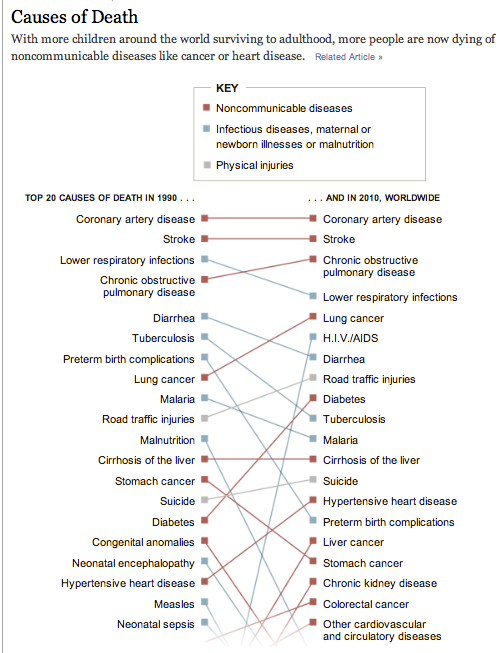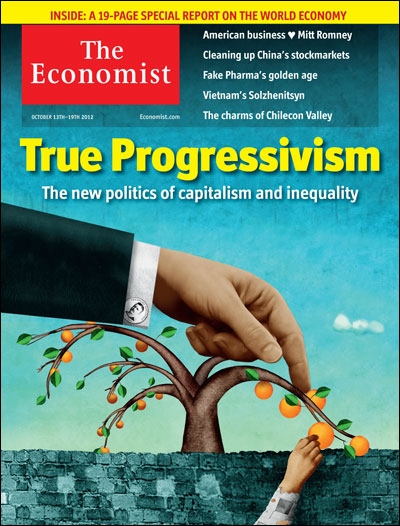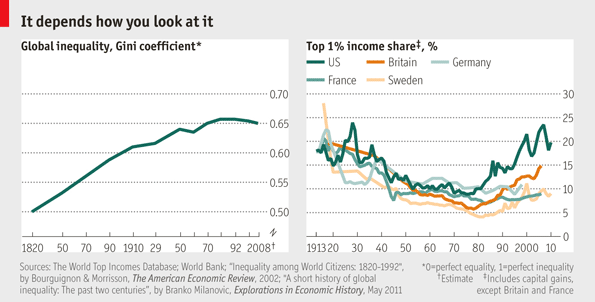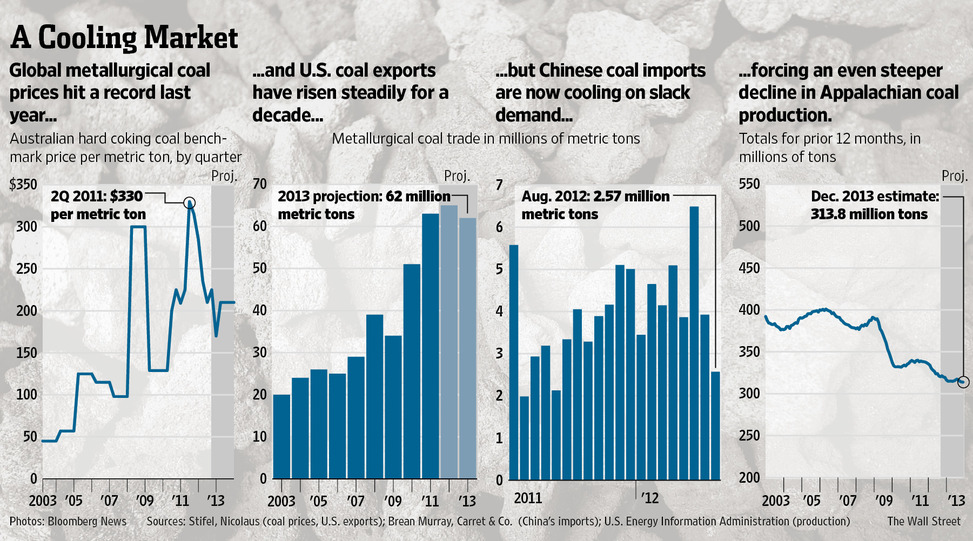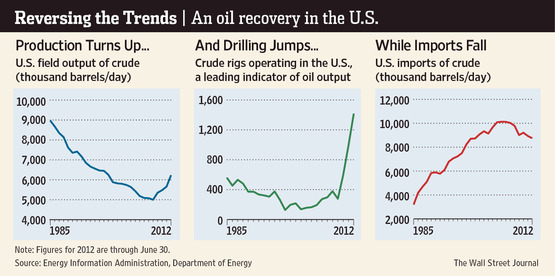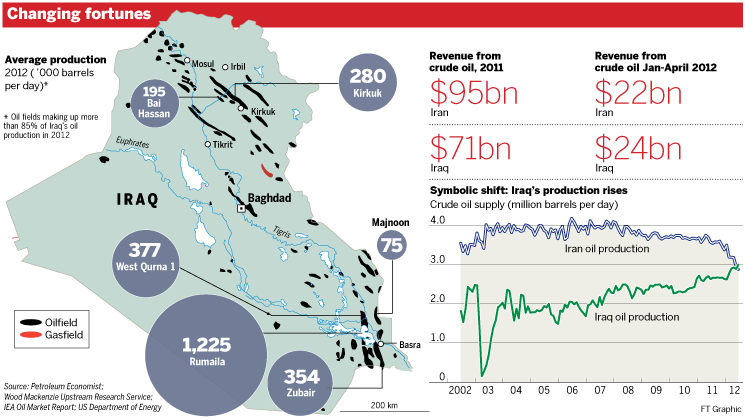
Fascinating factoid: 80 percent of the world's Jews live in US and Israel (roughly an equal split in numbers).
Then look at the lower right-hand bar charts and realize - Holocaust or no - that the 20th century was the best century the Jews ever had, because of the location of, and population concentration within, the two great safe places in the global system: the Jewish homeland of Israel and the next best thing called America. The Economist (where the chart is drawn from) notes that the Jewish faith is now stronger and more "alive" than it's been for a very long time. Naturally, Judaism experiences the same crises of all religious identities in this modernizing world (absolutely nothing "special" about the Jews in that regard, even as they consider themselves "chosen" like every other faith on the planet - the Lake Woebegon effect that all religions suffer ("I get it! You don't!")), but there's no question it's a powerful and well-placed faith in a world experiencing religious awakening (everywhere but Europe's non-Muslims).
Expats and coreligionists driving US foreign policy constitutes a long and storied tradition in America. It - for example - essentially defines our special relationships with the Brits and Europe in general. Is it weird or "unfair" with regard to Israel? Hardly. People want to see conspiracies and what not. But it's the simple - and beautiful -business of money talking.
America is a supremely fair place when it comes to minorities - save African Americans for obvious historical reasons. But, in general, if you're an immigrant group or otherwise minority, you can make yourself heard and somewhat obeyed in our political system simply by organizing yourself and applying your collective wealth to the system of influence that is our political system. Many people find this process slimy, but I love that the only color that matters in this country is green, because that's eminently more fair than skin tone. (And yes, the fact that our first African-American president is a genius at raising money in small amounts is highly indicative of this process - thank God!).
Simply put, NOBODY in this country gets what they want until they organize and start donating money (or spending in the market corollary) - i.e., start making their market heft known. We've seen it with ethnic group after ethnic group over the decades, and we're watching now with Hispanics and Asians - and Indians in particular (who are becoming amazingly adept at it at a rather fast pace). We likewise watch it now with the GLBT (gay, lesbian, bisexual, transgender).
Again, cry all you want, but I like a process where money beats prejudice. If you want to deny the party in question, then you mount a bigger effort. But, fortunately, people operating on the basis of love for something win out - time and again throughout history - over people operating on the basis of hatred (my personal fave being the early Christians v. Roman empire). This is why I don't argue over things like gay marriage or America's continued support to Israel: the connectors always win out over the disconnectors. May take some time, but it always happens.
You just can't bet against people wanting to connect.
Strategy-wise, you just doom yourself to failure.
Pulling back the lens, this is why I don't - in the end - worry about globalization's future. The fear-meisters will have their days (and revel in them), but history is stunningly clear on the subject - once America rose up and started running the show.
There is a reason why this is the greatest country in the world. It's not that we're the best at doing this (personally, I would choose Canada or the Netherlands or Sweden or Norway - all very Wisconsin-ish, so it wouldn't be a big change for me), it's that we're right up there with the best AND we have the capacity and will to spread our system across the planet. Notice how world history improves incredibly over the past several decades? It's no accident. It's America doing on a global scale what minorities do on a national scale within our country.
Again, money talks . . . and wins over prejudice and tradition and intolerance and hatred and violence and . . ..
 Thursday, February 14, 2013 at 9:28AM
Thursday, February 14, 2013 at 9:28AM 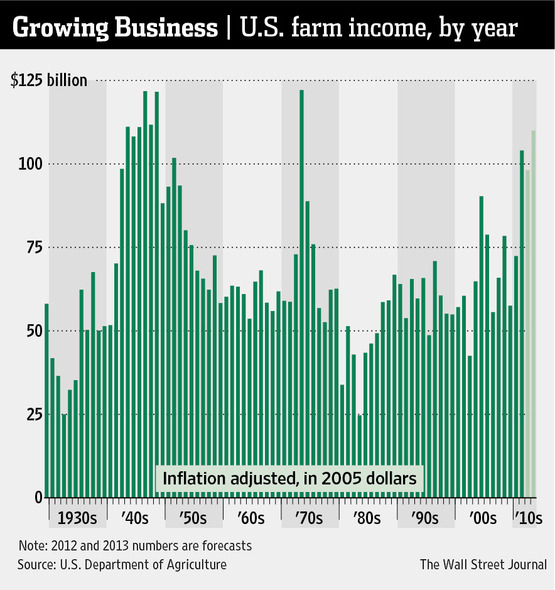
 agriculture,
agriculture,  global trends,
global trends,  global warming | in
global warming | in  Chart of the day |
Chart of the day |  Email Article |
Email Article |  Permalink |
Permalink |  Print Article
Print Article 








